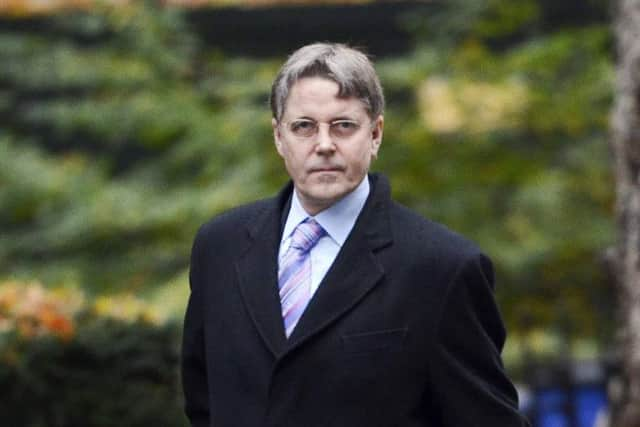Farmers face 'decade of uncertainty' following Brexit, Government warns


A new paper released by the Cabinet Office this morning said that withdrawal from the EU would lead to a 'range of difficulties' as a vote to leave would kick-start complex negotiations that could take years to resolve.
According to report The process for withdrawing from the European Union, a vote to leave the EU 'would be the start, not the end, of a process'.
Advertisement
Hide AdAdvertisement
Hide Ad"It could lead to up to a decade or more of uncertainty," the report concluded.


With no precedence of a member state ever leaving the union, the document uses trade deals to illustrate the complicated process of setting up new relations between the EU and non-EU states.
It said: "Trade negotiations are probably the closest equivalent in terms of complexity. Ambitious trade agreements can take up to a decade or more to agree from scoping to ratification, and sometimes take longer.
"The EU-Canada Trade Agreement (CETA) has taken seven years so far and still has to be ratified by the Council, the European Parliament and national Parliaments."
Advertisement
Hide AdAdvertisement
Hide AdHowever Leave.EU co-chairman Richard Tice said it was wrong to believe the EU had provided stability that shouldn't be disrupted.


Mr Rice said: "What certainty has Brussels offered to the steel industry, which we cannot protect from export dumping or assist financially without permission?"
The report released by the Cabinet Office on Monday morning explains how a vote to leave on June 23 would trigger Article 50 of the Treaties, which no country has ever used before.
A deadline of two years would be put in place for a country to finalise exiting the union, however the report said it would be difficult to get everything done by summer 2018.
Advertisement
Hide AdAdvertisement
Hide AdAll 27 member states would need to agree if Britain wanted to apply for more than two years, but if a country were to veto this there is concern that Britain would leave with no immediate replacement.
Furthermore, the final agreement for Britain to leave would need to be signed off by the EU, and specifically 20 out of 27 member states would need to give Brexit their blessing.
Those sectors most at risk from the uncertainty of leaving would be farming, those in finance and the security services involved in the policing of terrorism, the report said.
On farming, the 'serious' impact of leaving the EU's Common Agricultural Policy and subsidy schemes without an alternate plan in place is a worry.
Advertisement
Hide AdAdvertisement
Hide AdIt said: "In addition to the impact of withdrawing from the EU’s Common Agricultural Policy and associated subsidy schemes, they would also lose their preferential access to the European market if the UK left the EU without a successor arrangement in place."
Britain would join Norway and Switzerland in facing higher higher tariffs when trying to sell its agricultural produce to Europe from outside the single market, the report warned.
Currently the EU currently imposes an average tariff of 14 per cent on imports from non-EU countries and the rates are even higher for items such as dairy products - up to 36%.
The report continued: "UK farmers would also no longer be able to benefit from preferential access to non-EU countries secured by the EU under trade agreements.
Advertisement
Hide AdAdvertisement
Hide AdThe report comes as upset continues around the civil service ban on ministers being given support from civil servants and special advisers on the EU referendum.
Last week the head of the civil service Jeremy Heywood issued guidance that those Secretaries of State who have chosen to campaign for Britain to leave the EU should not be given help to prepare speeches or briefing material on the referendum.
Work and Pensions Secretary, Ian Duncan Smith, and leader of the House of Commons Chris Grayling are among those who will be lacking in support from their most senior staff members during their referendum campaign.
The Prime Minister's spokeswoman said: "There is no outright ban on Government ministers, whatever their position, receiving papers on EU related business.
Advertisement
Hide AdAdvertisement
Hide Ad"Day to day, EU business will continue in the usual way. They will continue to receive the papers they would normally have done relating to day to day business.
"On the issue of the EU referendum, there is a Government position that the Prime Minister has said to his ministers 'I recognise this is an important choice, I recognise your long-standing views so I will give you the option of taking a personal position', consequently suspending collective responsibility.
"The role of the civil service is to support the Government's policies and position of the day. Ministers who chose to take a different view are opposing that Government position."
Later today Bernard Jenkin is to ask an urgent question on the instructions issued by the Cabinet Secretary to the Permanent Secretary in respect of EU referendum guidance for the civil service and special advisers, at 4.15pm on Monday 29 February 2016 in the House of Commons.